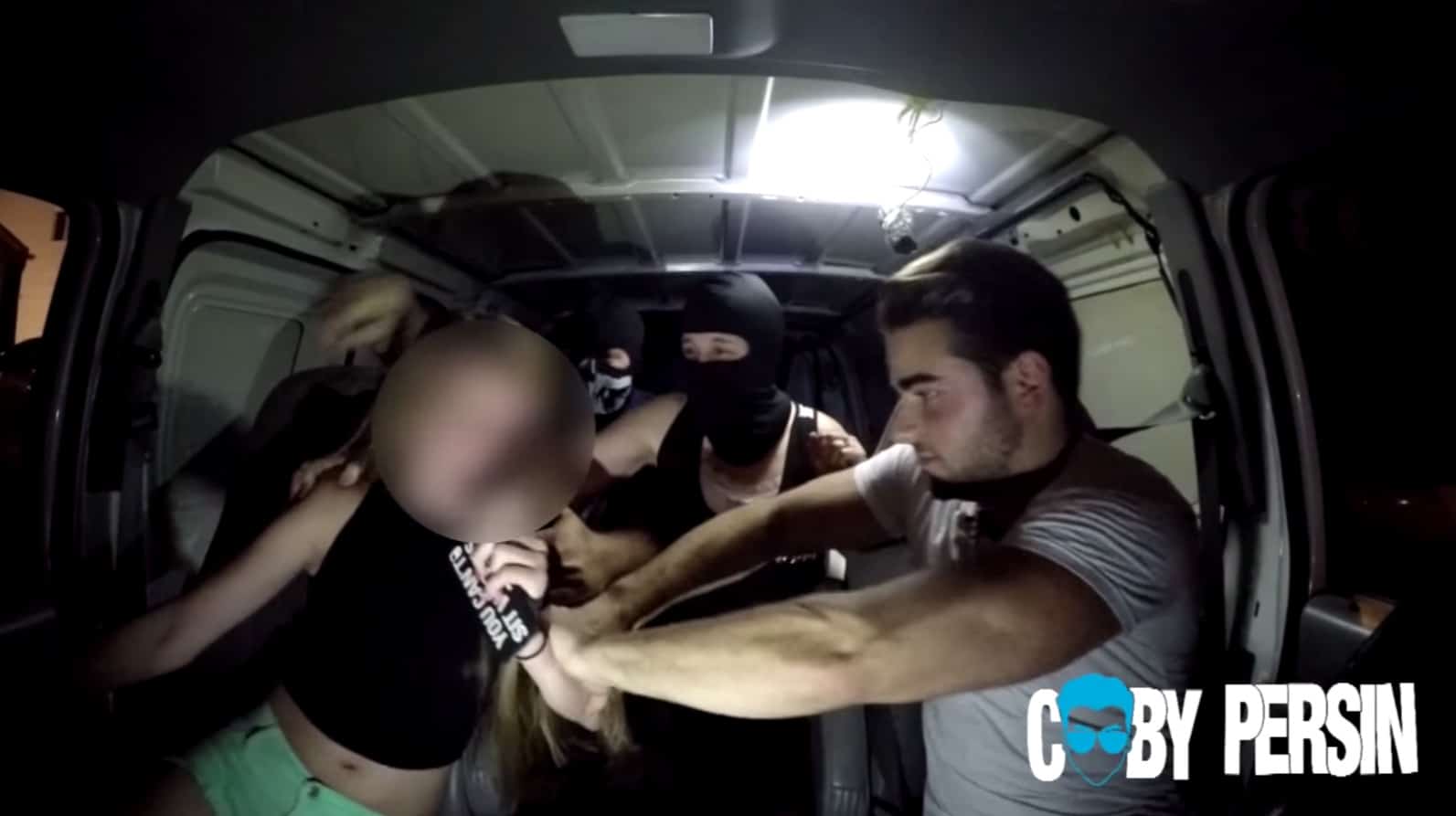Recently several members of our staff came across a video being shared on Facebook, with a common message from the person posting it: “please show your daughters this video.”
The video shows three scenarios in which parents have agreed to allow a 20 year old man to pose as a 15 year old and see if he could successfully trick their daughters into meeting him in person. The adult actor friended the girls (ages 12, 13, & 15) and chatted with them through social media for several days before requesting to meet in person. All three girls did in fact agree and were intercepted at the scene by their parents who immediately began yelling about how they could have been “raped or murdered,” followed by “how could you do this to me,” and displayed outrage and disappointment that their daughter would make such a dangerous decision.
This video created quite a buzz on social media and has also elicited fear in parents and community members. We felt it was important that The Rape Crisis Center point out a few issues to be considered while watching and discussing this video.
The entire video perpetuates many misconceptions regarding violence, specifically sexual violence.
In the video and narration, the full responsibility of preventing violence is placed on the potential victim rather than on the perpetrators committing the crime. This is problematic because it perpetuates victim blaming and does not hold perpetrators accountable.
Secondly, it plays into the misconception that strangers are the primary predators against teenagers when in reality the majority of sexual assault survivors know their perpetrators.
Finally, the fear factor was the only tactic used and promoted by the creator/20 year old actor, to teach youth.
We would like to share our thoughts on the use of fear in promoting safety and positive relationships.
Since 1975 The Rape Crisis Center has worked to build knowledge and skills with youth to prevent sexual violence in their communities. Utilizing scare tactics to teach youth on how to avoid becoming a victim of online predators or sexual violence is not a best practice employed in our work. The use of fear does not leave room for healthy conversations with youth about online safety and relationships.
A parent/child relationship is rooted in building communication — open, honest communication, with trust as the basis that allows it to happen in the first place. If you are looking for more effective ways to teach your child about online and personal safety, ask questions about how they develop and maintain relationships in their lives, how they decide to start and end relationships, and how they use their social media in those relationships. This can create space to have a conversation about red flags, boundaries, and confidence in listening to their instincts.
Safety should certainly be a part of those conversations. We do not yet live in a society free of violence and predators, so this is not a call to throw caution to the wind. Being thoughtful and preparing your conversation prior to having it with your child may be helpful in keeping blame and shame out of the conversation and keeping you involved in their interpersonal growth.
One staff member who viewed this video, and who is a survivor of sexual violence, shared that fear only kept her safe for so long. As a teen, fear instilled by her parents stopped her from doing things that could put her in harm’s way, initially.
When she was sexually assaulted, that same fear her parents used to try to keep her safe was the very thing that kept her from going to them for help. She knew her parent’s likely reaction would be to yell at her, punish her, and blame her for putting herself in a dangerous situation. In our 40 years of working with survivors, we can confidently say that being taught and guided by fear, will many times, become a barrier for survivors in seeking help when they needed it most.
Conversations with youth about serious and relevant issues like online safety, healthy relationships, and sexual violence are crucial. We realize these conversations can be hard to initiate and your child may not be as receptive, initially. The earlier you begin, the better equipped your child can be in having difficult conversations and navigating difficult situations. However, if you have a 12, 13, or 15 year old, it’s not too late.
Here are some things to consider when starting these conversations:
1) Talk less and listen more. You may have experienced similar struggles and peer pressure when you were a child or teenager and want to share your experiences, but remember your child needs to be the focus of the conversation and his/her situation needs to be treated sensitively. Don’t dismiss their feelings.
2) Don’t assume anything. Be curious and ask lots of questions to find out what they know regarding the topic. Find strengths in their past decisions, thoughts, and ideas to help them use past successful techniques for current struggles.
3) Utilize media to your advantage. If there is a music video, a movie, news segment, or a viral online video that you know your child has seen (especially if you’re watching it together), use this as a catalyst to start the conversation.
If you have further questions, please visit our website at www.rapecrisis.com. We also invite you to attend one of our agency tours, called “Conversations of Hope.” You can find upcoming dates and times of our tours on the Events Calendar on our website.

